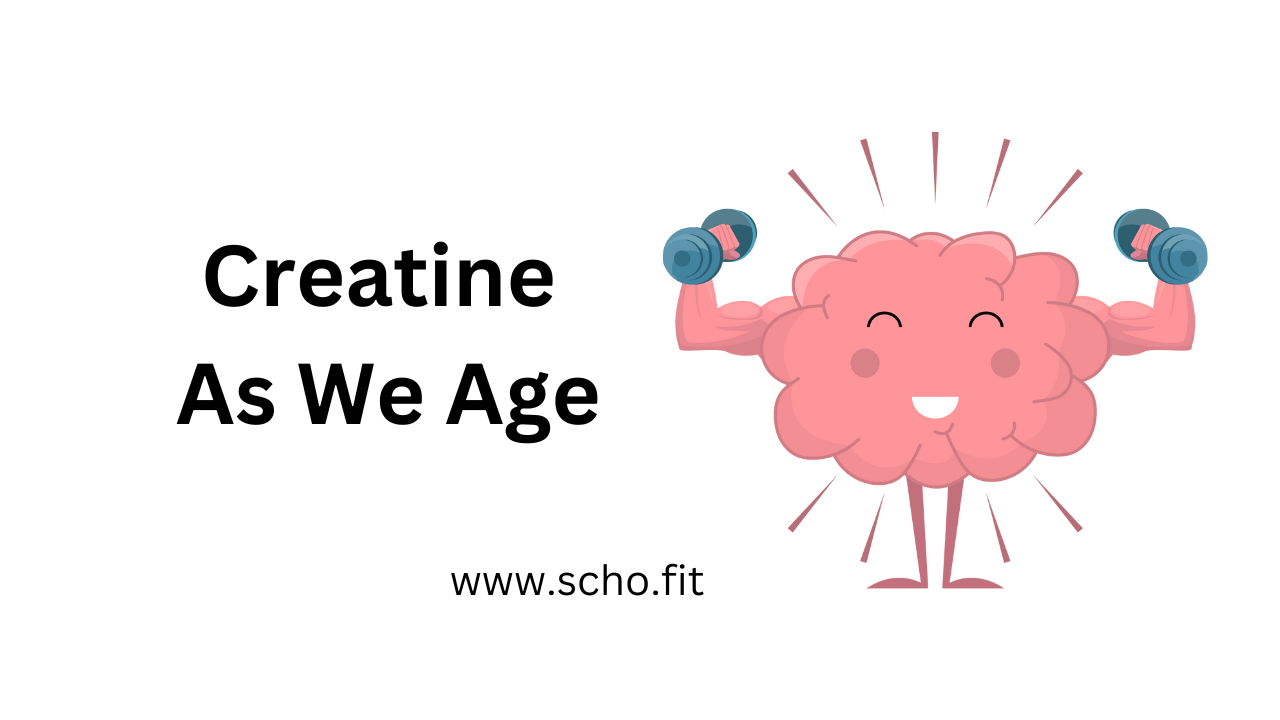
Why We Need Creatine
Mar 19, 2025Creatine as We Age: The Key to Strength, Brain Health & Longevity
By Marcy Schoenborn
Save 30% on Creatine and other products with code: 30offEAC Click Here
Aging is often associated with muscle loss, reduced energy, and cognitive decline, but what if there was a simple, well-researched supplement that could help combat these effects? Enter creatine—a naturally occurring compound that has long been popular among athletes but is now gaining recognition as a powerful tool for healthy aging.
If you think creatine is just for bodybuilders, think again! Research suggests that creatine supplementation can support muscle health, brain function, and overall well-being as we age. Let’s dive into the benefits of creatine and why it might be worth adding to your daily routine.
💪 What is Creatine & Why Do We Need It?
Creatine is a naturally occurring compound found in muscle cells, where it helps produce ATP (adenosine triphosphate)—the primary energy source for movement, brain function, and cellular repair.
🔹 Where does creatine come from?
- It’s found in foods like red meat, fish, and eggs
- Our bodies naturally produce it in the liver, kidneys, and pancreas
- Creatine levels decline as we age, which can contribute to muscle weakness and cognitive decline
Since most people don’t get enough from diet alone, supplementing with creatine can help replenish stores and support overall vitality.
💪 Creatine & Muscle Health as We Age
One of the most significant issues with aging is muscle loss (sarcopenia)—the gradual decline in muscle mass and strength.
How Creatine Helps:
✅ Preserves Muscle Mass – Creatine supplementation helps increase lean muscle and reduce muscle breakdown.
✅ Enhances Strength & Performance – Studies show that older adults who take creatine while exercising experience greater gains in strength and mobility.
✅ Improves Recovery – Creatine helps reduce muscle fatigue and supports faster recovery after activity.
💡 Want to stay strong and active well into your later years? Adding creatine to your routine may help keep muscles functioning optimally!
🧠 Creatine & Brain Health: A Game-Changer for Aging Minds
Beyond muscles, creatine plays a crucial role in brain energy metabolism. As we age, our brain's ability to use energy efficiently declines, which may contribute to cognitive decline, memory loss, and neurodegenerative conditions.
How Creatine Supports the Brain:
✅ Enhances Memory & Cognition – Research suggests that creatine supplementation improves memory and mental clarity, especially in older adults.
✅ Reduces Mental Fatigue – Creatine boosts ATP production in the brain, helping to combat brain fog and fatigue.
✅ Protects Against Neurodegenerative Diseases – Preliminary studies suggest that creatine may help reduce the risk of Alzheimer’s, Parkinson’s, and other neurodegenerative conditions.
💡 Think of creatine as fuel for your brain, keeping it sharp, energized, and resilient as you age!
⚡ Energy & Metabolism Benefits of Creatine
Fatigue is a common complaint among older adults, but creatine can help boost overall energy levels by enhancing cellular function.
How It Helps:
✅ Increases ATP Production – More energy means less fatigue and greater endurance.
✅ Supports Heart Health – Some studies suggest creatine may help maintain healthy blood pressure and circulation.
✅ Aids in Metabolic Health – Creatine may improve insulin sensitivity and support better glucose control, which is important for preventing age-related metabolic disorders.
💡 Feeling sluggish? Creatine can help sustain energy levels so you can stay active and engaged in life!
💊 How to Use Creatine for Aging Well
What’s the Best Type?
🔹 Creatine Monohydrate – The most researched, effective, and affordable form of creatine.
How Much Should You Take?
📌 Recommended Dosage:
- 3–5 grams per day is ideal for maintenance and long-term benefits.
- No need to "load" creatine—just take it consistently.
When to Take It?
- Morning or pre-workout (for energy & muscle function)
- Post-workout (to support muscle recovery)
- Anytime (creatine accumulates in the body, so timing isn’t critical)
💡 Mix creatine into water, smoothies, or your favorite beverage—it's tasteless and easy to incorporate into your daily routine!
🚫 Who Should Avoid Creatine?
While creatine is safe for most people, certain individuals should consult a doctor before using it:
❌ People with kidney disease – If you have pre-existing kidney issues, consult a healthcare provider first.
❌ Those prone to dehydration – Creatine pulls water into muscle cells, so staying hydrated is crucial.
❌ People taking medications affecting kidney function – Always check with a doctor to avoid interactions.
💡 For most healthy adults, creatine is one of the safest and most effective supplements for supporting longevity and vitality!
📝 Final Thoughts: Why Creatine is a Must-Have for Healthy Aging
Aging doesn’t have to mean losing strength, energy, or mental clarity. Creatine is a simple, well-researched supplement that supports:
✅ Stronger muscles & mobility
✅ Better brain function & memory
✅ Sustained energy & metabolism
✅ Faster recovery & resilience
💡 If you’re looking for a science-backed way to stay strong, sharp, and energized as you age, creatine is a powerful addition to your wellness routine!
Don't miss a beat!
New moves, motivation, and classes delivered to your inbox.
We hate SPAM. We will never sell your information, for any reason.
